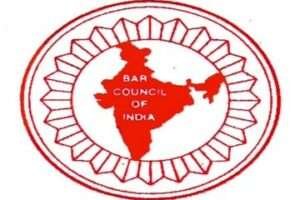Waqf Tribunal Has Jurisdiction Even If Subject Property Is Admitted To Be A Waqf Property
Case: Rashid Wali Beg vs. Farid Pindari
Coram: Justices Hemant Gupta and V. Ramasubramanian
Case no.: CA 6336 of 2021
Court Observation: “To say that the Tribunal will have jurisdiction only if the subject property is disputed to be a waqf property and not if it is admitted to be a waqf property, is indigestible in the teeth of Section 83(1)”
“Take for instance a case where a property is disputed to be a waqf property. Then as per the decision in Ramesh Gobindram, the Waqf Tribunal would have jurisdiction to decide the question whether it is a waqf property or not. Suppose the Tribunal reaches the conclusion that the disputed property is a waqf property, would the Tribunal then continue to have jurisdiction to grant relief or would it be denuded of the jurisdiction, merely because the property was found to be a waqf property ? This is a question for which no answer could be found if we adopt the restrictive interpretation.”
“A bare reading of Sections 6 and 7 extracted above, shows that the language employed therein appears to have deflected the attention of many a court without exception. The reason why we say so, is this. A careful look at the scheme of the Act would show that the Act is divided into 9 chapters. Chapter II which contains Sections 4 to 8, is primarily concerned with the survey of waqfs4 . Sections 6 and 7 are incidental to the scheme of Chapter II alone, which is why they speak only about two questions namely, (i) whether a particular property specified as a waqf property in the list of waqfs is actually a waqf property or not; and (ii) whether a waqf specified in such list is a Shia waqf or Sunni waqf. While Section 4 contemplates a preliminary survey of all waqfs in the State, Section 5(2) speaks about publication of the list of waqfs (separately for Shia and Sunni) in the official gazette. Since Sections 6 and 7 follow Sections 4 and 5, they refer only to the aforesaid two questions. In other words, the questions relevant for the purposes of Sections 4 and 5 alone, are dealt with in Sections 6 and 7 and hence the discussion regarding the jurisdiction of the Waqf Tribunal should not start and end with Sections 6 and 7. “
“Sections 83 and 85, as well as Sections 86, 90 and 93, which use the word “court”, are to be found in Chapter VIII of the Act. The heading given to Chapter VIII is “Judicial Proceedings”. Therefore, for finding an answer to the question relating to the bar of jurisdiction under Section 85, it is not enough merely to refer to Section 6(5) or Section 7(2). The language of Section 85 is clearly in contrast to the language employed in Section 6(5) and Section 7(2).”
“A conjoint reading of Sections 6, 7 and 85 would show that the bar of jurisdiction of civil court contained in Section 6(5) and Section 7(2) is confined to Chapter II, but the bar of jurisdiction under Section 85 is all pervasive.”
“In fact, when Ramesh Gobindram was decided, Sections 6(1) and 7(1) enabled only three categories of persons to approach the Waqf Tribunal for relief. They are, (i) the Board; (ii) the mutawalli of the waqf; or (iii) any person interested therein. However, the explanation under Section 6(1) clarified that the expression “any person interested therein” shall include every person, who, though not interested in the waqf, is interested in the property. But by Act 27 of 2013 the words, “any person interested” were substituted by the words, “any person aggrieved”, meaning thereby that even a non Muslim is entitled to 40 invoke the jurisdiction of the Tribunal. Due to the substitution of the words “any person aggrieved”, Act 27 of 2013 has deleted the Explanation under 6(1). This amendment has also addressed the concern expressed in Ramesh Gobindram (in para 21 of the SCC report) whether a non Muslim could be put to jeopardy by the bar of jurisdiction, merely because the property is included in the list of waqfs. We must point out at this stage that the Explanation under sub section (1) of Section 6, as it stood at the time when Ramesh Gobindram was decided, already took care of this contingency, but was omitted to be brought to the notice of this court.”
“Thus the Act itself has created some confusion, leaving the rest to the courts to compound the conundrum. Sadly, the Amendment Act 27 of 2013 also did not address the problem fully.”
[doc id=11685]
Previous Posts
Section 138 NI Act: Complaint Cannot Be Proceeded With Once The Accused And Complainant Enter Into A Settlement Agreement: Supreme Court Download Judgement




